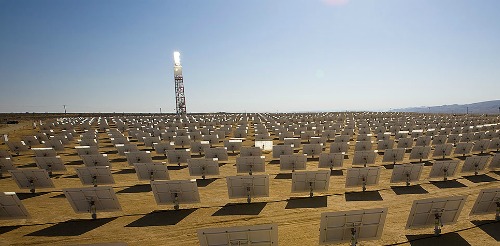Israel welcomed executives from 40 Indian companies to learn how Israeli clean-tech innovators can help India’s businesses prosper in a green way.

A clear shift is happening in the world. The economies of emerging countries, poised to avoid mistakes made in the West, are rapidly expanding to address water and energy needs. Countries such as India and China, where many citizens lack modern sanitation and electricity, are seeking solutions that are not only environmentally friendly, but cost-friendly as well.
These countries can leapfrog over the hurdles holding back America and Europe from renewing archaic water pipes, valves and energy infrastructure. Instead, they can adopt clean technologies from the get-go.
And Israel is hoping to help get them there. A free trade agreement between Indian states and Israel is now in the works and is likely to enable business enormously. Earlier this year, Israel’s Finance and Industry ministries earmarked $29 million to promote trade with China and India.
With eager partners on both sides of the table, Israeli government officials, companies and investors welcomed CEOs and VPs from 40 Indian companies in June to learn how Israeli clean-tech partners can help India’s businesses prosper.
Indian delegates from companies including Jindal Power, Eureka Forbes and Ispat Industries will meet representatives from Israeli industry such as solar energy companies BrightSource Energy, HelioFocus and Zenith Solar; and water technology pioneers Netafim, IDE Technologies and Kinrot Ventures, the water-tech incubator that has in-house labs for the visitors to see.
Building on billions in trade
Historically, the two countries share more than the capital “I” in their names: Diplomatic ties between Israel and India were established in 1992, and last year trade blossomed to $4.7 billion, not including defense sales, making India Israel’s second major export market.
So where do Israel and India stand on clean-tech business? The boom is just waiting to happen, says Anat Bernstein-Reich, a managing partner at A&G Partners, an investment firm with an office in India. She’s also a vice president of the Israel-Asia Chamber of Commerce. A&G Partners put the four-day clean-tech matchmaking forum together in Tel Aviv with Israel’s Ministry of Foreign Affairs.
Bernstein-Reich had the foresight 15 years ago to set up a business with an Indian partner, learn Hindi and start developing trade opportunities. The forum she helped organize comes on the heels of a memorandum of understanding that India and Israel will cooperate on cross-border innovation and entrepreneurship. The agreement focuses on high-tech, but there is some crossover as clean-tech is an approach that can be implemented in any industry.
This is the second delegation Bernstein-Reich arranged to bring to Israel. Last year, a group of CTOs came to Israel, and this year she and her colleagues decided to look at clean-tech. “My own company invests in a variety of sectors from real estate to entertainment,” she says, obviously looking to cultivate the next big deal.
Focus shifting east
Over the last couple of years, Israel has moved its focus from Europe and the United States to fast-growing countries like China and India. Europe and the US today tend to be slower to change and adopt new technologies and clean-tech solutions, mainly because quasi-governmental infrastructure companies must meet rigorous approval processes and standards. And this can take years.
Israel, quick to innovate and relying on an export market, can enter the Asian markets as fast as they open up. If the innovators can match India’s needs and standards at the development stages, solutions uptake – and business – could be rapid.
Naushad Forbes, director of India’s Forbes Marshall, a steam engineering company, told The Media Line news service: “There’s a complementary software story. Indian firms are entirely process orientated and Israel firms are much more about product. If we put those two together, we can be unbeatable worldwide.”












